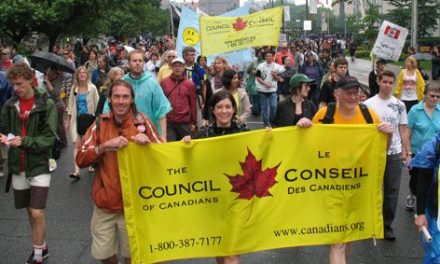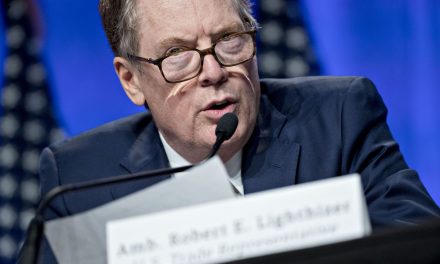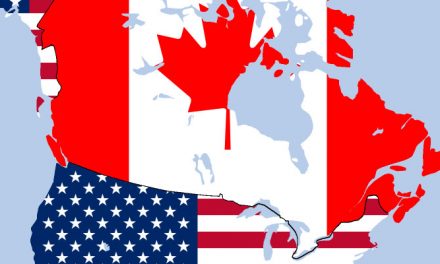Social Movements From All 3 Countries to Protest NAFTA in Mexico
Social movements from Canada, the U.S. and Mexico are traveling to Mexico City Friday to protest a meeting held between Mexico and Canada Tuesday to discuss reforms to NAFTA, which has had a disastrous impact on all three countries’ Indigenous populations, farmers, campesinos, labor unions and migrant groups, among others.
Foreign Affairs Minister Chrystia Freeland held a meeting with Mexico’s Foreign Affairs Secretary, Luis Videgaray. Since U.S. president Donald Trump’s inauguration, there have been 235 meetings between Canadian and U.S. government officials, Freeland told the Huffington Post. Canada has been trying to work towards renegotiating the 1994 North American Free Trade Agreement.
Earlier in March, Freeland was questioned over her stance on negotiating with Trump and inclining towards a U.S.-first trade policy, ignoring Mexico, “There is no negotiating process yet initiated. In fact, the United States does not even have a team in place to begin those negotiations. So let’s not put the cart before the horse,” according to the Globe and Mail.
Nadia Ibrahim of the Trade Justice Network in Canada said in a statement, “The economic, social and environmental impacts of NAFTA have been devastating to people in all three countries, including an increase in poverty and inequality, the weakening of labor rights while corporate rights have been strengthened, and the erosion of environmental protections.”
Freeland has consistently downplayed any suggestion of the NAFTA renegotiation that would give Canada an opportunity to do a side deal with the Trump administration, against Mexico’s wishes. She said it is will simply be common sense that the 23-year-old agreement is “modernized” by all three members. “We don’t even feel this is a contentious issue. It’s just a matter of common sense. NAFTA can be modernized only with the agreement of the three parties,” Freeland said, according to Huffington Post.
“Since the implementation of NAFTA, we have witnessed an unprecedented increase in profits, and economic inequality in Canada — it’s time for alternatives to the current neoliberal free trade model,” said Raul Burbano, Program Director of Common Frontiers in a statement.
“For 30 years, NAFTA has been a backroom deal for those at the top. So far, the pattern has repeated itself, with the Canadian government enlisting the support of corporate Canada and former Prime Minister Brian Mulroney. Yet, NAFTA affects not only our jobs but the planet,” explained Sujata Dey, Trade Campaigner from the Council of Canadians.
“The renegotiation process has to be transparent and participatory and any NAFTA replacement must ensure respect for human rights, improve peoples’ lives and livelihoods, and protect the environment in all three countries,” said Ronald Cameron, coordinator of the Quebec Network on Hemispheric Integration.





